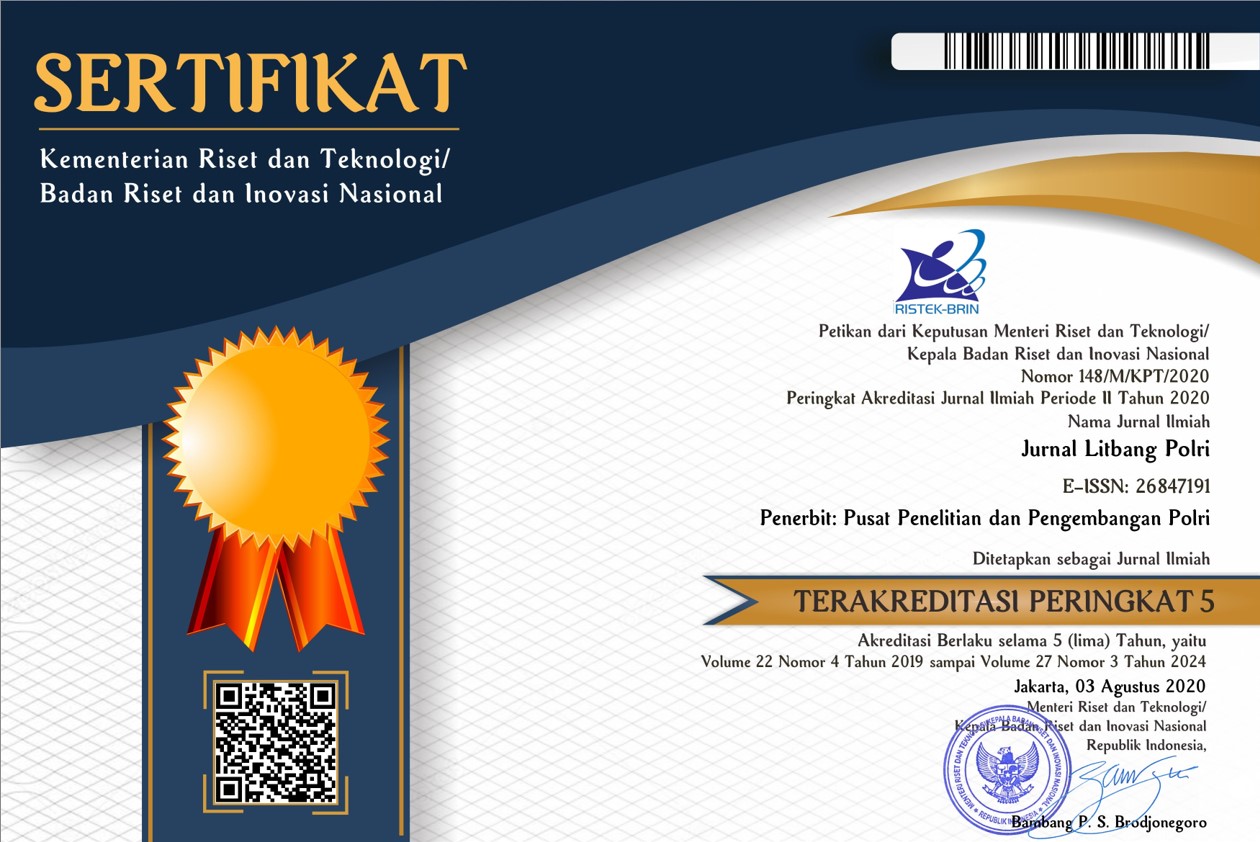Analysis of the Effectiveness of Drugs Interdiction Strategy in Indonesia: A Study on the National War on Drugs Policy
Abstract
This paper will evaluate the interdiction method that the Indonesian government employs in their ongoing war on drugs. The interdiction policy is divided into two components: first, reducing supply of drugs by intensifying crackdowns on illicit drug shipments from abroad and closing down hidden shipping lanes; and second, diminishing demand by enacting tough drug laws for users and traffickers alike in order to discourage the usage and labour for trafficking. The paper concludes that, like with any interdiction approach used globally, it is hampered by the balloon effect’s impact of route displacement and the hydra effect of the large incentive associated with trafficking, causing the inelastic nature of the drug trade. Although this study confirms that drug interdiction strategy is inefficient, interestingly it continues to be a popular policy among Indonesian politicians, law enforcers, and citizens, which could dissuade the desire for alternative approaches to addressing the illicit drugs issue.
The copyright of articles published in Jurnal Litbang Polri remains with the author. However, by submitting the manuscript and agreeing to its publication, the author grants Jurnal Litbang Polri the first publication right to:
-
Publish the article openly (open access)
-
Distribute, store, and reproduce the article in both print and electronic formats
-
Archive the article in institutional digital repositories, scientific indexing services, and publication databases
Authors retain the right to use their article for personal, academic, or institutional purposes, provided that the original source of publication in Jurnal Litbang Polri is properly cited.


 Jalan Raya Tonjong, Desa Cimanggis, Bojonggede, Kabupaten Bogor.
Jalan Raya Tonjong, Desa Cimanggis, Bojonggede, Kabupaten Bogor. 










